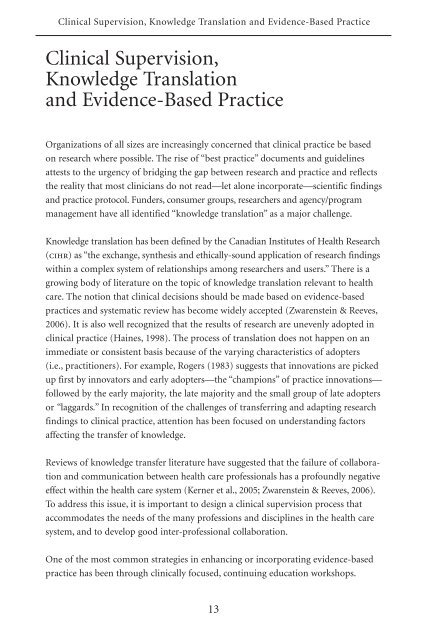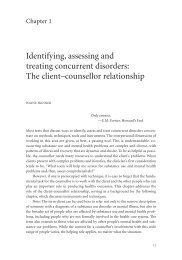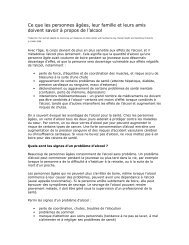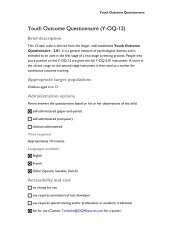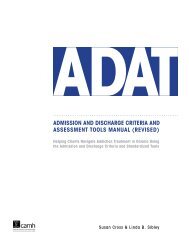Clinical Supervision Handbook - CAMH Knowledge Exchange ...
Clinical Supervision Handbook - CAMH Knowledge Exchange ...
Clinical Supervision Handbook - CAMH Knowledge Exchange ...
You also want an ePaper? Increase the reach of your titles
YUMPU automatically turns print PDFs into web optimized ePapers that Google loves.
<strong>Clinical</strong> <strong>Supervision</strong>, <strong>Knowledge</strong> Translation and Evidence-Based Practice<br />
<strong>Clinical</strong> <strong>Supervision</strong>,<br />
<strong>Knowledge</strong> Translation<br />
and Evidence-Based Practice<br />
Organizations of all sizes are increasingly concerned that clinical practice be based<br />
on research where possible. The rise of “best practice” documents and guidelines<br />
attests to the urgency of bridging the gap between research and practice and reflects<br />
the reality that most clinicians do not read—let alone incorporate—scientific findings<br />
and practice protocol. Funders, consumer groups, researchers and agency/program<br />
management have all identified “knowledge translation” as a major challenge.<br />
<strong>Knowledge</strong> translation has been defined by the Canadian Institutes of Health Research<br />
(cihr) as “the exchange, synthesis and ethically-sound application of research findings<br />
within a complex system of relationships among researchers and users.” There is a<br />
growing body of literature on the topic of knowledge translation relevant to health<br />
care. The notion that clinical decisions should be made based on evidence-based<br />
practices and systematic review has become widely accepted (Zwarenstein & Reeves,<br />
2006). It is also well recognized that the results of research are unevenly adopted in<br />
clinical practice (Haines, 1998). The process of translation does not happen on an<br />
immediate or consistent basis because of the varying characteristics of adopters<br />
(i.e., practitioners). For example, Rogers (1983) suggests that innovations are picked<br />
up first by innovators and early adopters—the “champions” of practice innovations—<br />
followed by the early majority, the late majority and the small group of late adopters<br />
or “laggards.” In recognition of the challenges of transferring and adapting research<br />
findings to clinical practice, attention has been focused on understanding factors<br />
affecting the transfer of knowledge.<br />
Reviews of knowledge transfer literature have suggested that the failure of collaboration<br />
and communication between health care professionals has a profoundly negative<br />
effect within the health care system (Kerner et al., 2005; Zwarenstein & Reeves, 2006).<br />
To address this issue, it is important to design a clinical supervision process that<br />
accommodates the needs of the many professions and disciplines in the health care<br />
system, and to develop good inter-professional collaboration.<br />
One of the most common strategies in enhancing or incorporating evidence-based<br />
practice has been through clinically focused, continuing education workshops.<br />
13


